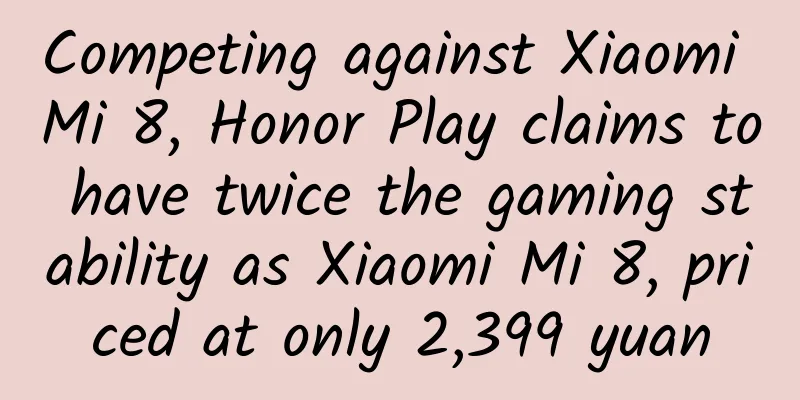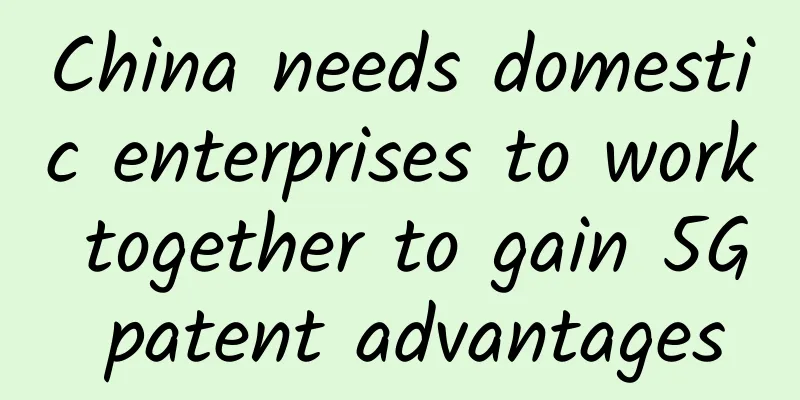2017 Global Innovation Report: Pan-AI fields gain strength, while genomics/VR cool down

Recently, MIT Technology Review, a subsidiary of the Massachusetts Institute of Technology, once again released its annual "50 Smartest Companies" (50 commercially viable innovative companies in the world). According to the judging criteria, these 50 companies are those that have performed best in exploring technological innovations with commercialization potential in the past year. Penguin Intelligence has long been paying attention to MIT's annual selection, and last year launched the "Global Commercializable Innovation Report: 50 Companies and 28 Technology Fields" based on the 2016 list. This year, we tried to make a comprehensive comparison of the companies on the list in the past two years. We hope that these comparative data will help the industry judge the development trends in the technology field in the past two years. The following are the findings of the comparative report: 1. Artificial intelligence is gaining strength, surpassing genetic technology to lead the industry In 2016, the ratio of genetic technology to artificial intelligence was 11:9, with genetic companies leading the way. In 2017, however, artificial intelligence overtook the competition with a ratio of 12:7, becoming the largest category of “innovation field”. This is certainly closely related to the long cycle of innovation in the genetic field and the threshold of commercial safety standards, but it also reflects the further prosperity and strengthening of companies in the field of artificial intelligence over the past year. In 2016 and 2017, artificial intelligence was used on a larger scale, especially in the commercialization field, and achieved multiple innovations. At the same time, in the fields of autonomous driving based on artificial intelligence, the companies on the list in 2017 also saw significant growth. E-commerce has also received more attention in the past year. However, technologies such as AR, VR, smartphones, and social networking have shrunk in terms of innovation distribution in the past year. 2. American companies remain the center of technological innovation, while Chinese companies continue to rise Compared with last year, the total number of American companies on the list this year has not changed, but in terms of region, the number of Silicon Valley companies exceeds that of non-Silicon Valley companies - in the United States, a new wave of innovation has become further "Siliconized." The number of Chinese companies on the list nearly doubled from 5 in 2016 to 9 in 2017, including 7 from mainland China and 2 from Taiwan. The five Chinese companies on the list in 2016 were Baidu, Huawei, Tencent, Didi Chuxing and Alibaba. The nine Chinese companies on the list this year are iFlytek, Tencent, Face++, DJI, Foxconn, Alibaba, HTC, Ant Financial and Baidu . There are no companies from Japan and South Korea on the list this year, but one company from India is newly listed, which also reflects, to a certain extent, the market shift point in technological innovation in Asia over the past year. 3. The number and valuation of listed companies have increased, gaining favor from capital Of the 50 companies on the list this year, 31 have gone public, six more than last year. Capital is also investing more in mature technology companies with technological innovation capabilities—the average valuation of listed companies has risen from $101.38 billion to $163.95 billion, an increase of 61.7%. Although the valuations of unlisted companies have increased, the increase is not large and is relatively stable. 4. List of 50 companies + detailed comments from MIT Technology Review:
1. Nvidia Headquarters: Santa Clara, California Status: Available Listed in: 2015, 2016, 2017 Market value: $90.9 billion Comments: Although most of Nvidia's revenue still comes from graphics card sales, the company has become a leading processor manufacturer in the artificial intelligence industry, and its AI-related businesses are developing rapidly. In the most recent quarter, revenue from data centers and automotive businesses increased by 186% and 24% year-on-year, respectively. Nvidia said that all mainstream Internet and cloud computing service providers are using the company's chips, and many large automakers, including Toyota, are also using the company's autonomous driving technology.
2. SpaceX Headquarters: Hawthorne, Calif. Status: Not available Listed in: 2011, 2012, 2013, 2014, 2015, 2016, 2017 Valuation: $12 billion Comments: In 2017, SpaceX demonstrated its ability to recycle and reuse rockets. Reusable rockets will make space travel cheaper and faster, which is critical to SpaceX's long-term goal of building an interplanetary transportation system. SpaceX also reduced the time it takes to recycle rockets (from 1 year to a few months) and launched preliminary testing of the Falcon Heavy rocket. When completed later this year, it is expected to become the world's most powerful rocket.
3. Amazon Headquarters: Seattle, Washington Status: Available Listed in: 2013, 2014, 2015, 2016, 2017 Market value: $479.3 billion Comments: Amazon is using a variety of artificial intelligence technologies, including computer vision, machine learning, and natural language processing, to reinvent mobile computing and shopping. The company's smart voice assistant Alexa can currently control a variety of devices, whether it is a car or a TV. It is expected to become an important computing platform for the next generation. In addition, Amazon opened the Amazon Go store in Seattle, trying to make the physical store shopping experience smoother. Consumers only need to walk into the store, scan with the app on their mobile phone, and leave directly with the purchased items. Amazon uses artificial intelligence, cameras, and sensors to identify the items selected by consumers and automatically charge them. Consumers do not have to line up to check out.
4. 23andMe Headquarters: Mountain View, California Status: Not available Listed in: 2016, 2017 Valuation: $1.1 billion Comments: Founded in 2006, 23andMe is a pioneer in direct genetic testing for the general public. In 2013, the company ran into trouble when the U.S. Food and Drug Administration (FDA) banned the company from providing health information. However, this year, regulators made changes that allowed the company to resume its main business of informing users of their risk of developing a variety of diseases in genetic reports, including Alzheimer's, Parkinson's, and eight other diseases. 23andMe extracts genes from cells in customers' saliva samples and then uses genotyping chips from Illumina to detect health- and ancestry-related traits. Customers can then view this information online. 23andMe currently has 2 million customers worldwide, and the company's products are used in many research projects, including female fertility, depression, Parkinson's, and the nail-biting habits of some people.
5. Alphabet Headquarters: Mountain View, California Status: Available Listed in: 2016, 2017 Market value: $673.9 billion Comments: Alphabet's subsidiaries are leaders in artificial intelligence, self-driving cars, and virtual reality/augmented reality. The company's DeepMind continues to develop new ways for artificial intelligence systems to simulate human intelligence and learn faster. Alphabet's driverless subsidiary Waymo is continuing to optimize the performance of its technology. However, after the top engineer jumped to Uber, Waymo and Uber had an intellectual property lawsuit. Alphabet's largest and most well-known subsidiary Google is working with hardware manufacturers to develop stand-alone headsets for the Daydream virtual reality platform. The new product will provide a built-in display and processor, eliminating the need to rely on a smartphone, and will also use sensors to better track users' movements in the virtual world.
6. iFLYTEK Headquarters: Hefei, China Status: Available Listed in: 2017 Market value: $6.8 billion Comments: iFlytek, already a leader in speech recognition in China, is developing voice command systems for cars, homes, robots and schools. In the past year, the company has launched systems that help users control cars, TVs and appliances with voice; invested in a startup developing home robots; and established a joint venture to develop educational products that integrate its real-time translation capabilities. In addition, iFlytek has established a multimillion-dollar fund to invest in artificial intelligence-related startups around the world. The company says more than 160,000 developers currently use its software, and the number of product users exceeds 400 million.
7. Kite Pharma Headquarters: Santa Monica, California Status: Available Listed in: 2017 Market value: $5.7 billion Comments: The immunotherapy company extracts T cells responsible for immune function in the human body and bioengineers them to make them anti-cancer. The company's technology has achieved very good results in the treatment of non-Hodgkin's lymphoma, with more than 1/3 of the participants having no symptoms after 6 months of treatment. However, two people died due to known side effects, accounting for about 2% of the study participants. However, this is very close to the threshold for approval by the US Food and Drug Administration (FDA).
8. Tencent Headquarters: Shenzhen, China Status: Available Listed in: 2013, 2014, 2015, 2016, 2017 Market value: $350 billion Comments: The past year has been a breakout year for Tencent. Tencent owns WeChat, China's largest social network, and is also the world's largest video game company. Although WeChat has more than 900 million monthly active users, Tencent is still developing this mobile app. Currently, WeChat provides a variety of functions such as messaging, mobile games, shopping, music, video, and P2P payment. The wide range of functions continues to attract new users and ensure that existing users remain active in WeChat. This can help Tencent sell more advertising and services. With the development of games, online advertising and payment businesses, Tencent surpassed Wells Fargo in April this year to become one of the top 10 companies in the world by market value.
9. Regeneron Headquarters: Tarrytown, New York Industry: Biopharmaceuticals Status: Available Listed in: 2017 Market value: $55.5 billion Comments: Regeneron is a recognized biotech company with a reputation for treating eye diseases and certain other diseases. The company focuses on using genetic information for drug development. In March of this year, Regeneron announced that together with the British Biobank and pharmaceutical giant GlaxoSmithKline, the company will sequence the genetic data of 500,000 volunteers to support drug development and study the relationship between genes and diseases. In addition, the company is also focused on developing "ready-to-use", bioengineered T cells for treating tumors without the need for the patient's own immune cells. This new approach will make it easier to scale such technologies. In 2016, Regeneron's revenue was $4.9 billion and its net profit was close to $900 million.
10. Spark Therapeutics Headquarters: Philadelphia, Pennsylvania Status: Available Listed in: 2016, 2017 Market value: $1.9 billion Comments: In addition to its treatment for a progressive blindness disease, the company is also testing a method to treat hemophilia B, a disease related to blood clotting. The new method uses a virus delivered intravenously that carries the correct gene for a blood clotting protein. The research is noteworthy because the disease currently affects 1 in 5,000 men and is expensive to treat using traditional methods.
11. Face++ Headquarters: Beijing, China Status: Not available Listed in: 2017 Valuation: $1 billion Comments: Facial recognition services are very popular in China, and Face++'s software provides technology for many popular Chinese apps. Alipay uses this technology to help users log in and complete payments by scanning their faces. Didi Chuxing, a ride-sharing provider, uses this technology to identify drivers. Smartphone app developer Meitu also uses this technology to provide powerful photo beautification functions. The five-year-old startup is considered the world's first "unicorn" in the field of facial recognition and has completed at least $145 million in financing in recent years, including a round of at least $100 million in December 2016.
12. First Solar Headquarters: Tempe, Arizona Status: Available Listed in: 2010, 2011, 2012, 2016, 2017 Market value: $4.3 billion Comments: In the past year, First Solar has secured some of the world's largest solar farm deals, including a 140-megawatt solar farm in North Queensland, Australia, which is also the largest solar farm in Australia. . First Solar develops, builds and operates photovoltaic power plants connected to the grid. The company is also continuing to invest heavily in cadmium telluride cells, which offer significant improvements over silicon solar cells. The company also had a good start to the year. In the first quarter of 2017, the company's results exceeded expectations and it raised its outlook for the current quarter.
13. Intel Headquarters: Santa Clara, California Status: Available Listed in: 2010, 2012, 2013, 2016, 2017 Market value: $160 billion Comments: A series of AI-centric investments and acquisitions are helping Intel to make up for the decline of its main business, the PC processor business. In the past year, the company has acquired deep learning startup Nervana, computer vision chip maker Moviduis, and driver assistance system provider Mobileye. The acquisition of Movidius allows Intel to sell chips to drone giant DJI. The acquisition of Mobileye has helped the company reach cooperation with BMW and Delphi Automotive on driverless technology. In March of this year, Intel established the Artificial Intelligence Products Group to further accelerate the development of its artificial intelligence business.
14. Quanergy Systems Headquarters: Sun Valley, California Status: Not available Listed in: 2017 Valuation: $1.6 billion Comments: While several startups have tried to develop compact, low-cost, high-quality lidar systems for self-driving cars, Quanergy was the first to develop a solid-state lidar that can be used in practice, enhancing the reliability of laser scanning radar. The company's lidar manufacturing costs are relatively low because it uses the same materials and manufacturing processes as computer chips. These sensors are small enough to be embedded in car headlights for use in advanced driver assistance systems. These sensors are expected to be integrated into self-driving cars in 2021.
15. Vestas Wind Systems Headquarters: Aarhus, Denmark Status: Available Listed in: 2017 Market value: $19.1 billion Comments: In recent months, Vestas has become the world's largest supplier of wind turbines and has surpassed General Electric to become the leader in the US market. According to Navigant Research, the company added nearly 6,500 megawatts of power generation capacity in the second half of last year. In the most recent quarter, the Danish wind power giant's net profit increased fourfold year-on-year, achieving profitability for the 14th consecutive quarter. Currently, Vestas is investing in energy storage to further expand the market and potential of wind power generation.
16. Apple Headquarters: Cupertino, California Status: Available Listed in: 2010, 2011, 2012, 2013, 2015, 2017 Market value: $761.4 billion Comments: Apple has not launched innovative new products for a long time, and users have generally responded to services and products such as Apple Pay and Apple Watch. However, this year Apple launched the HomePod smart speaker with integrated Siri to compete with Amazon Echo. In addition, Apple has also begun to introduce progress in the field of artificial intelligence, such as acknowledging its work on autonomous driving systems. In the past period of time, Apple has been quietly recruiting talents in the fields of robotics and artificial intelligence. The company's design and software and hardware integration capabilities will be very valuable assets.
17. Merck Headquarters: Keniworth, New Jersey Status: Available Listed in: 2017 Market value: $182.5 billion Comments: Merck offers one of the most successful immunotherapies on the market. The number of lung cancer patients participating in trials is growing rapidly, and sales of the technology are expected to rise sharply. Keytruda, a drug that has been approved for use in trials in certain people who have not yet received chemotherapy, has put Merck one step ahead of its competitors in immunotherapy.
18.Carbon Headquarters: Redwood, Calif. Status: Not available Listed in: 2016, 2017 Valuation: $1 billion Comments: Carbon, which was founded four years ago, is exploring new approaches that are fundamentally different from other 3D printing technologies. The company's technology uses high-performance polymers such as polyurethane and epoxy resins. Carbon says the technology can print polymer objects quickly, in some cases thousands of times faster than other 3D printers, while supporting a variety of materials, including synthetic rubber and durable and hard plastics. Carbon's number of customers is growing rapidly. For example, Adidas uses the company's technology to produce the midsole of its sneakers. Other customers use the company's technology to print components for electric vehicles, servers, and refrigeration systems. These components are relatively difficult to manufacture using other methods.
19. Desktop Metal Headquarters: Burlington, Massachusetts Status: Not available Listed in: 2017 Valuation: None Comments: Desktop Metal has received nearly $100 million in funding from venture capital firms, General Electric, and Alphabet. The company is trying to use 3D printing technology to reinvent the way metal parts are made. Making such printing technology easier and cheaper is a challenge, and Desktop Metal has announced product prices. This shows that the company has made good progress in commercializing its technology. Its initial product, including a printer and sintering furnace, costs $120,000. The company will launch a complete production system in 2018 for $420,000. Customers can also choose to lease such a system.
20.Ionis Pharmaceuticals Headquarters: Carlsbad, Calif. Status: Available Listed year: 2017 Market value: $6.9 billion Comments: Along with Biogen, Ionis is developing the innovative RNA therapeutic Spinraza. The drug was approved in 2016 to treat spinal muscular atrophy, a disease that is difficult to treat with current methods. The drug chemically enhances RNA strands so that the patient's body can correctly assemble a protein needed for nerves. Ionis is testing other drugs to treat five other rare and serious genetic diseases.
21.Gamalon Headquarters: Cambridge, Massachusetts Status: Not available Listed year: 2017 Valuation: None Comments: Many of the current popular artificial intelligence technologies require a lot of data for training. But Gamalon said that because it can learn from a small number of examples, the company's probabilistic programming algorithm is more efficient. In addition, such a system can run on an iPad or laptop without the need for expensive servers and graphics processors. The startup was only exposed in February 2017 and is currently helping e-commerce and manufacturing companies organize and match text data from different sources, such as inventory databases. The company received $4.45 million in seed round financing and won a $7.7 million government contract.
22. Illumina Headquarters: San Diego, California Status: Available Listed in: 2010, 2013, 2014, 2015, 2016, 2017 Market value: $28 billion Comments: As a leader in commercializing rapid human genome sequencing technology, Illumina reported a sharp drop in revenue last fall and said the market for gene sequencing equipment may be saturated. Three months later, the company released a new device, NovaSeq. This new device can sequence the genes of up to 48 people in two and a half days, and in the future it is possible to reduce the cost of gene sequencing to $100, thereby greatly promoting this technology and allowing researchers to better understand diseases.
23. Facebook Headquarters: Menlo Park, California Status: Available Listed in: 2011, 2012, 2013, 2015, 2016, 2017 Market value: $447.9 billion Comments: It's been a turbulent year for Facebook. However, controversies surrounding fake news and violent content have not stopped Facebook from making strides in artificial intelligence. The company is using computer vision and neural network technology to develop more powerful features for its artificial intelligence assistant "M" and provide new ways to search for photos without descriptions or tags. Facebook is using certain technologies, such as algorithms that can identify suicidal messages or terrorist propaganda, to fight back against public criticism of the company.
24. Udacity Headquarters: Mountain View, California Status: Not available Listed in: 2017 Valuation: $1 billion Comments: After trying to make money with free online courses, Udacity now offers courses that train specific skills needed by technology companies, such as data analysis, digital marketing, and driverless car engineering. Most of Udacity's "Nanodegree" programs cost $200 per month and take users 6 to 9 months to complete. Five of the courses are part of a paid program that promises to find a job for graduates within 6 months, otherwise the tuition will be fully refunded. In order to improve students' employment prospects, Udacity often looks for large companies to help develop courses and encourage them to consider hiring graduates. Recently, Udacity also launched a project called Blitz to match people from technology companies to certain contract tasks.
25. DJI Headquarters: Shenzhen, China Status: Not available Listed in: 2017 Market cap: $10 billion Comments: DJI still dominates the consumer drone market. The company has developed smaller, more powerful aircraft at lower prices. The $999 Mavic Pro drone brings advanced flight features, such as obstacle avoidance, and its foldable thrusters make it easy to fit in a backpack. The company's latest product, the $499 Spark drone, fits in the palm of your hand, weighs less than a can of soda, and can be controlled with hand gestures. DJI has also launched more powerful drones for the enterprise market. The company's Matrice 200 can be used for industrial inspections and search and rescue missions. DJI had revenue of $1.4 billion in 2016 and expects to exceed $1 billion in 2017.
26. MercadoLibre Headquarters: Buenos Aires, Argentina Status: Available Listed in: 2017 Market value: $12.1 billion Comments: MercadoLibre from Argentina is the largest e-commerce and online payment platform in Latin America. It can be considered a combination of Amazon, eBay and PayPal in the local area. In the Mexican market, the company beat Amazon and currently operates in 17 countries, including Brazil and Venezuela. MercadoLibre was founded in 1999. Despite the economic downturn in Latin America, the company continues to expand into new markets, make acquisitions, and achieve strong financial results.
27. Microsoft Headquarters: Redmond, Washington Status: Available Listed in: 2013, 2015, 2016, 2017 Market value: $549.7 billion Comments: Microsoft's cloud computing business is growing, helping the company reduce its reliance on PCs and improve profit margins. Microsoft's consumer products business is recovering with its Surface Book, Studio, Laptop, and HoloLens augmented reality headset. At the same time, Microsoft is also developing future-oriented businesses, such as developing a genetic-based data storage system and taking a unique approach to quantum computing.
28. Rigetti Computing Headquarters: Berkeley, California Status: Not available Listed in: 2017 Valuation: None Comments: Rigetti Computing aims to develop the world's most powerful quantum computer. The company plans to open up such computing power to multiple companies. The startup has developed a prototype quantum chip and is currently developing a cloud computing platform to use these chips to support artificial intelligence and computational chemistry. Large companies, including Google, IBM and Microsoft, are also researching quantum computing, but Rigetti Computing says its approach is cheaper and can be scaled up faster.
29. Kindred AI Headquarters: San Francisco, California Status: Not available Listed year: 2017 Valuation: None Comments: Unlike other AI startups, Kindred believes that in the future, intelligent machines will work in collaboration with humans, improving the efficiency of both parties. The company's system matches robots to human "navigators." These operators wear virtual reality headsets and hold motion tracking controllers. The robots use machine learning algorithms to operate, but if there is a problem, such as needing to pick up or place items in a warehouse, human operators can temporarily take over control, and the robots will optimize performance through reinforcement learning. This technology can bring new types of artificial intelligence and general robots that can perform a variety of tasks.
30.Sophia Genetics Headquarters: Lausanne, Switzerland Status: Not available Listed in: 2017 Valuation: None Comments: Sophia Genetics uses artificial intelligence algorithms to analyze patients' genetic sequences to diagnose cancer and other diseases more quickly. The company's business model is to charge hospitals and doctors, with reports that the price per test is between $50 and $200. The company does not sell directly to individuals. Sophia Genetics hopes that as the number of patients grows, the precision of the analysis will be optimized. The technology is currently used in more than 300 hospitals in 50 countries in Latin America, Europe and Africa.
31. Tesla Headquarters: Palo Alto, California Status: Available Listed in: 2017 Market value: $64 billion Comments: Some industry insiders worry that Tesla is stretching its business lines too far. The company is building a super factory and acquiring SolarCity. At the same time, accidents caused by the Autopilot driver assistance function and car maintenance issues are causing negative effects. However, the company is still moving forward boldly. Tesla remains one of the best examples of companies focused on sustainable development. The company's brand has been successful, its technology has continued to improve, and its electric vehicles, energy storage equipment and solar equipment are also economically competitive. Earlier this year, Tesla launched a large-scale battery factory, and this summer the company is expected to launch its next product, the lower-priced Model 3, targeting a wider market. The Model 3 has received more than 400,000 pre-orders, which shows the market demand for this model.
32. Oxford Nanopore Headquarters: Oxford, UK Status: Not available Listed in: 2016, 2017 Valuation: $1 billion Comments: The gene sequencing device MinION launched by Oxford Nanopore is about the same size and weight as a stack of cards. It can read genetic information by measuring the electrical signals generated by each gene bond through about 500 nanopores. The development of this device took 12 years and cost $200 million. Its size and design make remote detection possible. This device is particularly useful for identifying and studying bacteria and viruses. In 2016, MinION was used to sequence the genes of mosquitoes infected with Zika virus in Brazil, revealing the origin of this infectious disease. Currently, the company is trying to prove that its technology can meet a wide range of market needs. Currently, the leader in rapid gene sequencing technology is Illumina.
33. Foxconn Headquarters: New Taipei City, Taiwan Status: Available Listed year: 2017 Market value: $160 billion Comments: Foxconn is the iPhone's OEM and China's largest contract manufacturer. Foxconn Chairman Terry Gou said the company is considering investing $7 billion to build a display factory in the United States and may hire tens of thousands of people. At the same time, Foxconn is also investing in automation technology in its home market to cope with rising labor costs. Foxconn has independently developed production robots, or Foxbots, and currently has 40,000 such robots in use. Foxconn executive Dai Jiapeng said that eventually the company hopes to produce PCs, monitors and iPhones in a fully automated way.
34.M-KOPA Headquarters: Nairobi, Kenya Status: Not available Listed in: 2017 Valuation: None Comments: M-KOPA is the largest off-grid solar operator in sub-Saharan Africa. The company provides clean energy to users in Kenya, Uganda and Tanzania for a daily fee. This spring, the company has connected 500,000 households and sells its products through channels such as telecommunications operator Safaricom. The company's latest solar TV system has covered 60,000 households.
35.ForAllSecure Headquarters: Pittsburgh, Pennsylvania Status: Not available Listed year: 2017 Comments: ForAllSecure's information security tools can automatically find and fix vulnerabilities in software. The technology comes from decades of research at Carnegie Mellon University. The Pittsburgh-based startup spun out of Carnegie Mellon University in 2012 and attracted global attention in 2016. At that time, the company's information security system outperformed more than 100 other automated machines and won the Defense Advanced Research Projects Agency (DARPA) Information Security Challenge. The competition proved for the first time that a fully automated system can help users fix software vulnerabilities in real time. The company is currently attracting its first customers, which are likely to include US federal government departments, financial services companies, and connected device manufacturers.
36. Flipkart Headquarters: Bangalore, India Status: Not available Listed in: 2017 Valuation: $11.6 billion Comments: Amazon's massive investment in India has changed the country's e-commerce industry, but Flipkart, India's largest online marketplace, is fighting back. In April, the Indian e-commerce company received $1.4 billion in investment from global technology giants such as Tencent, eBay and Microsoft. As part of the deal, Flipkart acquired eBay's Indian business, which will bring international customers to the company and help third-party sellers sell goods across borders. To further strengthen its competitiveness, Flipkart is developing its own brand products and hiring artificial intelligence experts to optimize product search and recommendation functions on the website.
37.Bluebird Bio Headquarters: Cambridge, Massachusetts Status: Available Listed in: 2015, 2017 Market value: $4.5 billion Comments: Every year, about 300,000 babies are born with sickle cell disease. The disease is caused by a genetic defect related to the production of red blood cells. The disease can cause anemia, severe infections, and other dangerous complications. Some patients need blood transfusions to control the disease, and people from certain regions, including Africa, the Middle East, and Asia, are more likely to develop the disease. In March, it was reported that a teenager with sickle cell disease disappeared after 15 months of treatment with a new treatment at a Paris hospital. The gene therapy from Bluebird Bio modifies genes in the bone marrow. At the same time, the company is also studying treatments for adrenoleukodystrophy and beta-thalassemia.
38. Adidas Headquarters: Herzogenaurach, Germany Status: Available Listed in: 2017 Market value: $39.5 billion Comments: Adidas is changing the way it makes shoes. The company has built a large number of small factories using robots in Ansbach, Germany, and will start on-demand production later this year. In addition, Adidas has also announced that it will build similar customized factories in the United States to respond more quickly to local fashion trends. This marks the company's commercial production shift from Asia. At the same time, Adidas is also working with 3D printing company Carbon to explore new production methods, such as the grid-structured midsole in the Futurecraft 4D sneakers. For the printed midsole, Adidas tested 150 elastic materials.
39. IBM Headquarters: Armonk, New York Status: Listed Years on the list: 2010, 2011, 2012, 2013, 2014, 2015, 2016, 2017 Market value: US$145.4 billion Comments: IBM is continuing to invest in a variety of emerging technologies that are considered promising, such as blockchain. With the help of IBM, Walmart-like enterprise customers are using blockchain to track products in global supply chains. Although IBM has not yet achieved a financial recovery, the company's new businesses, including blockchain, cloud computing and artificial intelligence services, have brought more than 40% of the company's revenue in 2016. IBM is also continuing to develop quantum computing technology and plans to provide the technology in the form of cloud computing services.
40. General Electric Headquarters: Boston, Massachusetts Status: Listed Years on the list: 2012, 2013, 2014, 2017 Market value: US$237.4 billion Comments: GE has a history of more than 120 years and has adjusted its development strategy several times. GE's strategy may change again under the leadership of newly appointed CEO John Flannery. In recent years, the company has focused on investing in forward-looking industries such as wind power and renewable energy, while also developing data-driven services. The company is trying to use its vast service business to support data collection and analysis. GE's business monitors the operation of current products such as aircraft engines, train locomotives, and gas turbines. These systems are also integrating artificial intelligence technologies to track performance and predict possible failures in advance. GE announced its goal to become one of the world's top software providers by 2020. However, its long-standing competitors, such as Siemens, and new entrants in the industry, such as IBM, are also pioneering industrial data analytics business.
41. Alibaba Headquarters: Hangzhou, China Status: Listed Years on the list: 2015, 2016, 2017 Market value: US$363.7 billion Comments: Alibaba is already the world's largest e-commerce company and is currently challenging Amazon and Microsoft in the cloud computing service industry. Similar to Amazon, Alibaba initially invested in cloud computing infrastructure to support the development of its e-commerce and payments business, but then decided to open these computing power to others. Alibaba Cloud is currently Alibaba's fastest-growing business, and is expanding markets outside mainland China, building data centers in the United States, Europe, Australia and East Asia. Alibaba is also using cloud computing to provide big data services to small and medium-sized enterprises around the world. This is also part of Alibaba's "Global Electronic Trade Platform" project, which hopes to help small businesses complete more cross-border trade.
42.HTC Headquarters: Taoyuan, Taiwan Status: Listed Years on the list: 2010, 2011, 2017 Market value: US$7.3 billion Comments: HTC is transforming from a gradual decline in business (smartphones) to a growing business (virtual reality) and has achieved success. Although HTC still launches several high-end smartphones every year, the company's current focus is on the Vive virtual reality system that supports motion tracking. With this product, users can move freely in the virtual world, not just nodding and waving. HTC will also be one of the first companies to work with Google to develop independent virtual reality headsets. Such virtual reality headsets do not need to be used with smartphones, PCs, and cables. In addition, through the $100 million accelerator project, Vive X, HTC has invested in more than 60 virtual reality startups around the world.
43.Blue Prism Headquarters: London, UK Status: Listed Year on the list: 2017 Market value: US$591.5 million Comments: If companies can hand over their daily administrative work to software robots, employees can focus on higher-level work. This is Blue Prism's philosophy. In industries such as finance, healthcare and law, more and more companies are accepting this philosophy. BluePrism's "robot process automation" software can simulate humans to complete rules-based tasks, such as manually inputting data from textual materials to databases. The British company recently began to explore the U.S. and Australia markets and reached a partnership agreement with Accenture and IBM. The company currently has a market capitalization of about £500 million, which has risen 10 times since its listing in March 2016.
44.Jumia (AfricaInternet Group)
Headquarters: Lagos, Nigeria Status: Not listed Year on the list: 2017 Valuation: US$1.1 billion Comments: Founded in 2012, formerly known as Africa Internet Group, Jumia became Africa’s first “unicorn” company last spring, with a valuation of over $1 billion. At that time, Goldman Sachs and other investments invested $327 million in the company. Currently, the company operates all consumer-grade Internet services under the Jumia brand, including shopping, travel, takeout, real estate and automobiles. Meanwhile, Jumia is trying to overcome the challenges of running an e-commerce business in Africa: poor road transport conditions, consumer skepticism, and low Internet penetration in some markets, thereby seizing the opportunities brought by the expansion of the African middle class. For these issues, Jumia launched the J-Force project to build a network of authorized sales agents. These agents can help customers who lack Internet access or who are unwilling to place orders on their own.
45.Veritas Genetics Headquarters: Cambridge, Massachusetts Status: Not listed Years on the list: 2016, 2017 Valuation: None Comments: The startup splits out its personal genetic project from Harvard University. Last year, the company completed a $30 million funding funding, with investors including Eli Lilly Pharmaceuticals and China's Xiansheng Pharmaceuticals. Customers can test their genes to see if there are mutations related to certain health problems and can view this information through applications. It has been reported that the company's gene processing is slow, and it is not clear how much demand is for such a testing service. This year, the company has been involved in a controversial business. In China, the company offers neonatal gene decoding services, which charges $1,500 per person. Some experts worry that such services may lead parents to make incorrect assumptions about the future of children.
46. Daimler Headquarters: Stuttgart, Germany Status: Listed Year on the list: 2017 Market value: US$78.3 billion Comments: Daimler launched the Urban eTruck this year, providing electric vehicles to a wider user base. It is the first fully electric heavy-duty truck on the market. The car has a single charge range of only about 124 miles (about 200 kilometers), so it is mainly aimed at transportation work in cities, with the goal of solving noise and emissions during transportation. However, given the high cost and battery weight, long-distance trucks can't become a reality in the short term. eTruck is expected to be available in 2020. Daimler is also developing connected vehicles and autonomous driving technologies. The company is working with NVIDIA to launch an artificial intelligence vehicle project.
47.Salesforce Headquarters: San Francisco, California Status: Listed Year on the list: 2017 Market value: US$63.8 billion Comments: Salesforce and its platform for sales organizations had revenue of $8.4 billion last year. The company expects AI to transform the way people work and drive CRM (customer relationship management) software over the next five years. After acquiring natural language startup MetaMind in 2016, the algorithm launched by Salesforce this year shows how future work will evolve. The technology uses machine learning to summarize documents, generate accurate summary, and can help us summarize emails or daily news. This technology is smart enough to avoid the common problem of summarizing algorithms: producing too much repetitive text. However, the technology still fails to reach the level of artificiality.
48.Snap Headquarters: Los Angeles, California Status: Listed Year on the list: 2017 Market value: US$21.1 billion Comments: Competition from Facebook and slower user growth are affecting Snap's stock price. Snap's stock price is around $17, which is also the IPO (initial public offering) price of Snap in March this year. However, Snap, the parent company of messaging app Snapchat, continues to innovate. Snap acquires startups and uses their technology to add new features to Snapchat. In recent months, Snap has helped users share content on maps and provides a photo editing tool similar to Photoshop. Snap claims its app helps users communicate in ways that Facebook's apps can't do, and these new technologies have helped the company.
49.Ant Financial Headquarters: Hangzhou, China Status: Not listed Year on the list: 2017 Valuation: $60 billion Comments: Ant Financial was divested from Alibaba in 2014 and is the operator of the rapidly developing Alipay. Ant Financial is focusing on global markets and investing in financial industry companies in India, Thailand, Singapore and the United States. Currently, Ant Financial handles more than half of China's mobile payment transactions, with an annual active user base of more than 450 million. (In contrast, Apple Pay has only about 12 million users.) Ant Financial is integrating artificial intelligence technology into new products, including a car insurance loss-making system that uses artificial intelligence to handle accident photos. It has been reported that Ant Financial has the billions of dollars involved in user transactions. The company has also begun to provide users with micro loans, using users' consumption history to evaluate the credit of loan applicants.
50. Baidu Headquarters: Beijing, China Status: Listed Years on the list: 2014, 2015, 2016, 2017 Market value: US$61.1 billion Comments: Baidu is continuing to invest in AI research. However, the company's revenue growth is declining, and well-known AI experts also announced their resignation. In January this year, Baidu launched DuerOS, a smart voice assistant, similar to Amazon Alexa. In order to develop the driverless car project, Baidu also acquired a computer vision startup, signed a cooperation agreement with component manufacturers Bosch and Map, and announced plans to open source driverless hardware and software technology. It is not clear whether these projects of Baidu can be commercialized, but the Chinese government has expressed confidence in Baidu. Baidu has been selected to lead China's first national-level artificial intelligence research laboratory.
From: Penguin Smart Cool |
<<: iQIYI denies merger rumors with Youku Tudou
>>: US experts: True driverless cars won't be available until 2075
Recommend
The top ten screen-sweeping crises in 2019!
Crisis public relations summaries are made every ...
Android 11 new improvements exposed: remove the 4GB size limit for single files
According to the XDA forum, Google may remove the...
How much does it cost to develop a food delivery app in Jinchang?
How much is the quote for Jinchang takeaway devel...
Sex robots: Love me or them?
Currently, there is only one real sex robot you ca...
Case analysis: 4 key steps to establish a community operation system!
Running a live community is not an easy task, and...
The Spring Festival turned into a "Spring Disaster", it turns out that anxiety is "causing trouble"! How to relieve anxiety after the festival
I don’t know if you feel the same as I do recentl...
Shengfan QQ fully automatic fission accurate fans project, easily earn over 10,000 yuan a month
Shengfan QQ fully automatic fission accurate fans...
App Store rankings change, many well-known apps suffer ranking Waterloo
Apart from Uber's resurrection with a new she...
China Passenger Car Association: Global auto sales to reach 89.18 million units in 2023, up 11% year-on-year
Cui Dongshu, secretary general of the China Passe...
What exactly is going on as locusts sweep across East Africa? Will the locust plague in East Africa affect China?
Since the beginning of this year, locusts have sw...
New Oriental: Tian Jing's core grammar and long and difficult sentences English 1 and English 2 courses
New Oriental: Tian Jing's Core Grammar and Lo...
High-efficiency website and toolbox essential for new media operations
When it comes to new media operation tools and we...
What can't you bring on the train during the Qingming Festival and what can you bring on the train in limited quantities? Here's everything
Tomorrow is Qingming Festival Tomb sweeping, outi...
3 strategies for marketing growth in 2020!
Growth is a double-edged sword. It can solve many...
Green plums, the ultimate romance of the Chinese people
Written by Wei Shuihua The Latin scientific name ...









